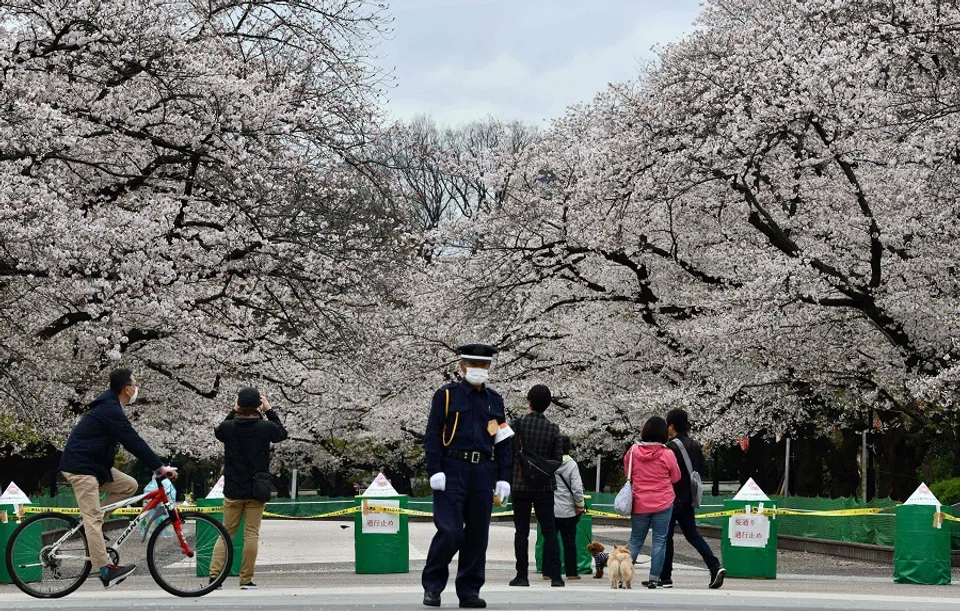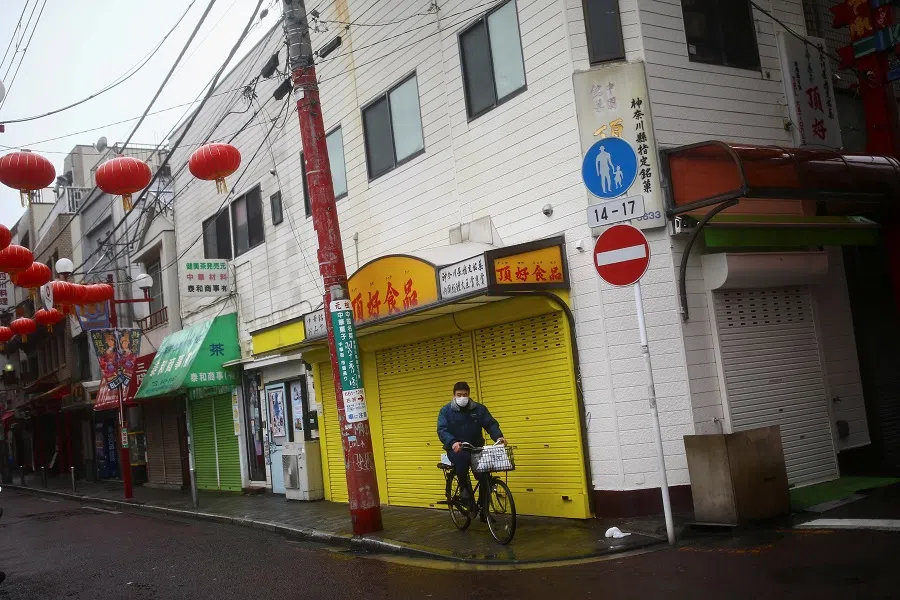Japanese academic: Battling Covid-19 is not a global match of going for gold
Shin Kawashima says that China needs to tread carefully in the ways that it is publicising its efforts in helping other nations battle the Covid-19 pandemic. Excessive propaganda tends to backfire and create huge perception gaps between China and the rest of the world, which will not be a good thing if it hopes to increase its soft power in the days and months ahead.

As the novel coronavirus (Covid-19) continues to spread across the world, China has begun to signal that it has put the worst of the outbreak behind it and it will remain on the front lines to help save humanity. China's bold propaganda campaign is underway to impress the world with the way it has tackled the outbreak and is helping other countries in their efforts to manage the crisis. However, this global public relations campaign by the Beijing government seems to be receiving some criticism abroad.
When the coronavirus started to spread in Japan, it was often reported that travellers from China were rushing to buy masks. Now China is offering masks to Japan as part of their governmental support initiatives, with individuals spreading messages of the same nature electronically.
Recently, I received an email that read, "I heard that the pandemic is developing rapidly in Japan, and masks are not available." It went on to ask for my postal address to send masks. It is obvious that the Chinese media has been eager to use a pro-Japan rhetoric in their reports over the past few months. They appreciated the masks donated by Japan when the outbreak was spreading in China, and they report that now China is helping Japan. However, things are not so pleasant in reality.
Later, the Japanese media reported that the restaurants targeted by the hate mail received warm support from the public and had many customers lining up to dine there.
When the outbreak began to spread rapidly in China, the fear triggered by the pandemic impacted business in Chinatowns in Japan, resulting in a significant plunge in the number of visitors and the temporary closing of large restaurants. In addition, the media reported that racist letters were sent to some Chinatown restaurants, containing hateful messages that read: "Get out of Japan." I am hopeful that these kinds of hate crimes are extremely rare. They are unacceptable. Later, the Japanese media reported that the restaurants targeted by the hate mail received warm support from the public and had many customers lining up to dine there.

It is true that there has been a dramatic drop in the number of people visiting Chinatowns across the country. In the wake of the pandemic spreading rapidly in Japan, the government called for the cancellation of large events and gatherings, which saw restaurant footfall decreasing across the board. The Chinatowns were admittedly affected more severely but damage to business has also been noticeable among Japanese-owned companies and restaurants operating in the Chinatowns.
...the gap in perception between China and the rest of the world may widen further if China continues to publicise its heartwarming reciprocal approach excessively both locally and globally, seeking to make uncomfortable developments around the world appear in their favour.
When China was in need, the whole world helped them, and now China is helping the world in return. In the context of the Japan-China relationship, Japan sent masks to China when they were faced with the Covid-19 crisis, and now China is offering masks to Japan to reciprocate our kindness. This sounds heartwarming and illustrates the old Chinese tale of "sending charcoal in snowy weather". However, such a tale does not describe everything happening in Japan and around the world in the context of the relationship with China. In Japan, for example, China's spirit of heartwarming reciprocity seldom seems effective at creating a positive image.
It is often said that China is not well understood by the world, but the gap in perception between China and the rest of the world may widen further if China continues to publicise its heartwarming reciprocal approach excessively both locally and globally, seeking to make uncomfortable developments around the world appear in their favour. We may not be surprised if China accuses the rest of the world of having distorted facts when the perception gap becomes obvious months later. Historically, the international community has experienced similar situations and learned certain significant lessons from them. The entire world pays attention to China, which is researched extensively. It is similar to a high-profile athlete being researched scrupulously by the opponents.
It is easy to imagine that the Chinese government will express political disappointment over the upcoming state visit in the absence of the rise in public sentiment welcoming Xi Jinping.

China's global propaganda campaign may produce results in countries or regions with whom it does not have strong relationships and or a long historical exposure. Conversely, countries that have strong relationships and years of experience with China seem to be well aware of all the patterns and techniques used by China in relation to their propaganda campaigns and political assertions.
It appears that China is actively publicising its pro-Japan approach using the story of masks being offered to Japan today. But this strategy by the Chinese government will never successfully change Japanese views. China's recent pro-Japan approach may have been designed to lay the groundwork for Xi Jinping's state visit to Japan. It is easy to imagine that the Chinese government will express political disappointment over the upcoming state visit in the absence of the rise in public sentiment welcoming Xi Jinping.
China's propaganda campaign may have a certain impact on public opinion inside China, but it does not easily impact other countries, due to its narrow view about the rest of the world.
The Covid-19 pandemic is an issue that requires initiatives on global governance. It is nothing like an Olympic Games of infectious diseases where countries compete to battle the crisis, and requires no campaigns aimed at enhancing national prestige, no calculated stories of friendship, and no extreme acts or derogatory speech.





